Cocaine recovery follows a predictable timeline that begins with an intense 72-hour crash phase marked by severe fatigue and withdrawal symptoms. You'll experience physical challenges in the initial week, followed by peak psychological symptoms around week two. The primary month brings emotional hurdles as your brain chemistry rebalances. While early recovery is challenging, most people see significant improvements in mood, sleep, and cravings between 3-6 months. Understanding the complete recovery process can help you prepare for each phase ahead.
 When cocaine use abruptly stops, a challenging 72-hour crash phase begins, marked by intense physical and psychological withdrawal symptoms. During this vital period, you'll likely experience severe fatigue, muscle aches, and increased appetite while your body attempts to rebalance. Sleep disturbances, including insomnia or vivid nightmares, are common. Many individuals experience paranoid thoughts during this initial phase. Patients often experience rapid mood swings between extreme irritability and lethargy. Medical professionals may prescribe anti-anxiety medications like clonidine to help manage symptoms. The most important challenges you'll face are intense cravings and profound depression, which can trigger thoughts of suicide. Your brain's disrupted dopamine regulation leads to cognitive difficulties and mood instability. Given these risks, seeking substance abuse assistance is essential. Professional medical detox provides crucial monitoring and support, while relapse prevention strategies help manage the nearly uncontrollable urges to use. Without proper support during this volatile period, the risk of relapse significantly increases.
When cocaine use abruptly stops, a challenging 72-hour crash phase begins, marked by intense physical and psychological withdrawal symptoms. During this vital period, you'll likely experience severe fatigue, muscle aches, and increased appetite while your body attempts to rebalance. Sleep disturbances, including insomnia or vivid nightmares, are common. Many individuals experience paranoid thoughts during this initial phase. Patients often experience rapid mood swings between extreme irritability and lethargy. Medical professionals may prescribe anti-anxiety medications like clonidine to help manage symptoms. The most important challenges you'll face are intense cravings and profound depression, which can trigger thoughts of suicide. Your brain's disrupted dopamine regulation leads to cognitive difficulties and mood instability. Given these risks, seeking substance abuse assistance is essential. Professional medical detox provides crucial monitoring and support, while relapse prevention strategies help manage the nearly uncontrollable urges to use. Without proper support during this volatile period, the risk of relapse significantly increases.
 During weeks one through two of cocaine withdrawal, you'll experience the most intense psychological and physical symptoms of your recovery process. During this critical period, you'll need comprehensive support, including medication assisted treatment to manage severe cravings and psychological distress. Your body and mind are working through peak withdrawal, with symptoms like depression, anxiety, and physical discomfort reaching their height. Patients often experience sleep deprivation and overexertion, which leads to extreme fatigue. Holistic healing approaches, combined with medical supervision, can help you navigate this demanding phase. The effectiveness of your recovery often depends on underlying health conditions that need to be addressed. You'll benefit from structured therapy sessions, support groups, and careful monitoring of your physical and mental health. As physical symptoms begin declining, you'll need to stay vigilant about psychological challenges. Focus on developing coping strategies and maintaining strong support networks to reduce relapse risks during this pivotal window.
During weeks one through two of cocaine withdrawal, you'll experience the most intense psychological and physical symptoms of your recovery process. During this critical period, you'll need comprehensive support, including medication assisted treatment to manage severe cravings and psychological distress. Your body and mind are working through peak withdrawal, with symptoms like depression, anxiety, and physical discomfort reaching their height. Patients often experience sleep deprivation and overexertion, which leads to extreme fatigue. Holistic healing approaches, combined with medical supervision, can help you navigate this demanding phase. The effectiveness of your recovery often depends on underlying health conditions that need to be addressed. You'll benefit from structured therapy sessions, support groups, and careful monitoring of your physical and mental health. As physical symptoms begin declining, you'll need to stay vigilant about psychological challenges. Focus on developing coping strategies and maintaining strong support networks to reduce relapse risks during this pivotal window.
 Understanding cocaine recovery milestones requires recognition of distinct phases that emerge as your brain and body heal from addiction. During weeks 2-4, you'll experience initial mood stabilization, though cravings remain intense. The brain shows early signs of dopamine rebalancing during this period. Months 2-3 may bring post-acute withdrawal symptoms, requiring key relapse prevention strategies. Medical supervision is crucial since there are no FDA-approved medications specifically for managing cocaine withdrawal symptoms. The 3-6 month period marks meaningful cognitive healing, with improved memory and stress management abilities. As you reach 6-12 months, you'll notice enhanced self-esteem and normalized sleep patterns, though lifestyle modifications remain essential. Beyond the one-year mark, you'll typically experience substantially reduced cravings and improved brain chemistry. Each phase presents unique challenges and opportunities for growth, with ongoing support and vigilance remaining critical throughout your recovery journey. Success rates improve significantly with continued participation in recovery programs.
Understanding cocaine recovery milestones requires recognition of distinct phases that emerge as your brain and body heal from addiction. During weeks 2-4, you'll experience initial mood stabilization, though cravings remain intense. The brain shows early signs of dopamine rebalancing during this period. Months 2-3 may bring post-acute withdrawal symptoms, requiring key relapse prevention strategies. Medical supervision is crucial since there are no FDA-approved medications specifically for managing cocaine withdrawal symptoms. The 3-6 month period marks meaningful cognitive healing, with improved memory and stress management abilities. As you reach 6-12 months, you'll notice enhanced self-esteem and normalized sleep patterns, though lifestyle modifications remain essential. Beyond the one-year mark, you'll typically experience substantially reduced cravings and improved brain chemistry. Each phase presents unique challenges and opportunities for growth, with ongoing support and vigilance remaining critical throughout your recovery journey. Success rates improve significantly with continued participation in recovery programs.
The First 72 Hours: Understanding the Crash Phase

Week One: Navigating Early Physical Symptoms
After surviving the initial crash phase, you'll encounter a week of significant physical withdrawal symptoms that demand careful management and support. During this period, you'll likely experience extreme fatigue, widespread muscle aches, and persistent headaches, often accompanied by chills and tremors. Medical intervention becomes crucial at this stage to provide necessary symptomatic relief. Night terrors and intense dreams frequently disrupt sleep patterns during this critical week. Intense cravings typically emerge and persist throughout this initial period. Proper symptom monitoring is indispensable as your body adjusts to functioning without cocaine. You'll notice increased hunger and potential weight gain as your body seeks to restore energy reserves. Focus on nutrition replenishment through balanced meals and adequate hydration, even when physical discomfort makes eating challenging. Sleep disturbances, including hypersomnia and vivid nightmares, are common during this phase. While these symptoms can feel overwhelming, remember they're temporary indicators of your body's healing process. Medical supervision remains essential, particularly if you experience severe depression or thoughts of self-harm.Breaking Through the Two-Week Peak

Month One: Managing Emotional Challenges
The initial month of cocaine recovery brings distinct emotional hurdles as your brain chemistry continues to stabilize. You'll likely experience significant mood swings, depression, and anxiety as dopamine levels fluctuate. These symptoms, along with persistent cravings and sleep disturbances, can impact your daily functioning and relationships. Learning to identify and respond to your personal trigger situations becomes crucial during this early phase. The brain's reward system disruption causes intense emotional instability during early recovery. Establishing consistent self-care routines becomes vital during this period. You may encounter heightened irritability, sadness, and feelings of hopelessness, particularly when facing emotional triggers or stress. Working with medically supervised detox programs can provide essential support during this vulnerable phase. Community support and professional guidance are indispensable, as severe depression may lead to suicidal thoughts requiring immediate clinical attention. Managing these challenges often involves implementing calm coping strategies like mindfulness, maintaining regular sleep patterns, and actively participating in structured support programs to address emotional dysregulation.Key Recovery Milestones and Timelines

Physical and Mental Changes During Recovery
Your recovery from cocaine involves complex physical and mental adaptations that follow distinct timelines. During initial withdrawal, you'll experience pronounced physical symptoms like fatigue and muscle aches, while psychological effects such as depression and anxiety may persist longer. Your brain's structural and functional recovery continues for months after cessation, with cognitive improvements occurring gradually as dopamine systems rebalance and white matter integrity improves. The withdrawal journey typically begins with 1.5 to 3 hours of initial discomfort before entering more intense phases of detoxification.Body Healing Timeline
During cocaine recovery, your body and mind progress through distinct healing phases, each marked by specific physical and psychological changes. The detoxification process begins with intense cravings and physical discomfort in the initial 72 hours, followed by escalating withdrawal symptoms during the first week. Your most challenging period occurs during weeks 1-2 of withdrawal management, when symptoms peak before gradually subsiding. You'll experience fatigue, sleep disturbances, and mood fluctuations. By weeks 2-10, you'll notice cravings becoming less frequent, though cognitive difficulties may persist. Long-term recovery, spanning months 2-6 and beyond, brings stabilization of physical symptoms and improved sleep patterns. However, you may still encounter occasional psychological challenges, and maintaining ongoing support remains essential for preventing relapse due to lasting neurochemical changes.Mind's Path to Recovery
As the brain commences healing from cocaine addiction, profound structural and functional changes occur in the prefrontal cortex, marking the start of a complex recovery expedition. You'll notice improvements in cognitive flexibility and decision-making as gray matter volume increases during abstinence, though these changes typically take weeks to months to materialize. During early withdrawal, you'll experience intense cravings and emotional instability, with depression and anxiety peaking in the initial two weeks. While emotional stability gradually returns over several months, protracted withdrawal symptoms may persist. Your brain's recovery strengthens your resistance to drug cues, particularly as prefrontal regions restore neural connectivity. Success in maintaining sobriety correlates strongly with ongoing therapeutic support and the development of effective coping strategies, helping to prevent relapse as your brain continues to heal.Support Systems and Treatment Options
Recovery from cocaine addiction consistently improves when individuals engage with extensive support systems and evidence-based treatment options. Research shows that family involvement and access to community resources greatly enhance treatment outcomes, with success rates increasing by 20-25% when thorough support networks are in place. Key elements of effective recovery support include:- Professional treatment programs offering both inpatient and outpatient options
- Therapeutic interventions combining cognitive-behavioral therapy and trauma-informed care
- Family education and participation in treatment planning
- Holistic approaches integrating mindfulness, wellness, and skill-building
Strategies for Long-Term Success
Building on the foundation of strong support systems, successful long-term cocaine recovery depends on implementing specific, evidence-based strategies that promote sustained sobriety. You'll need to actively manage triggers by identifying high-risk situations and developing personalized coping plans. Cognitive-behavioral therapy, combined with 12-step participation, provides essential tools for restructuring thought patterns and maintaining motivation. Your recovery expedition should include lifestyle modifications such as regular exercise, proper nutrition, and consistent sleep patterns. Medication management, when appropriate, can support your psychological stability. Engaging in mindfulness practices and new hobbies helps redirect focus while strengthening emotional regulation. Long-term success also requires ongoing participation in aftercare programs and regular therapy sessions, which provide accountability and early intervention when needed.Warning Signs and When to Seek Help
Recognizing cocaine addiction's warning signs early can prevent severe health complications and increase your chances of successful recovery. You'll need to monitor physical symptoms like dilated pupils, sudden weight loss, and persistent insomnia, while also watching for behavioral changes such as increased aggression, risky behaviors, and social withdrawal. If you experience emergency indicators like chest pain, seizures, paranoid delusions, or suicidal thoughts, seek immediate professional help, as these symptoms signal a potentially life-threatening situation requiring urgent medical intervention.Emergency Warning Signs
While cocaine use can quickly escalate into life-threatening situations, knowing the emergency warning signs enables you to take swift, potentially life-saving action. The most critical indicators of psychological toxicity effects include severe confusion, hallucinations, and extreme paranoia. Respiratory distress indicators, such as gurgling sounds or shallow breathing, require immediate medical intervention. You should seek emergency help immediately if you observe:- Loss of consciousness, seizures, or prolonged mental confusion
- Chest pain, irregular heartbeat, or difficulty breathing
- Severe agitation, uncontrollable aggression, or acute psychosis
- Profuse sweating accompanied by dangerously high body temperature
Physical Symptoms to Watch
During cocaine recovery, physical symptoms emerge in predictable patterns that require careful monitoring and appropriate intervention. You'll need to watch for severe fatigue, intense physical cravings, and persistent sleep disturbances within the first week. Pay particular attention to hydration concerns, as early withdrawal can lead to dehydration from neglected fluid intake. Monitor yourself for physical discomfort management needs, including chills, tremors, and muscle aches that may continue for weeks or months. If you experience persistent agitation with palpitations, severe anxiety with rapid breathing, or thoughts of self-harm, seek immediate medical attention. Your symptoms' severity often correlates with your previous cocaine use patterns and individual health factors. Professional medical supervision becomes indispensable if you've had heavy usage or concurrent health conditions.When Professional Help Is Necessary
Professional intervention becomes necessary when specific warning signs emerge beyond typical withdrawal symptoms. You'll need to recognize warning signs of crisis that indicate immediate emergency medical intervention is required for your safety and recovery. Key indicators that professional help is essential include:- Experiencing persistent psychological distress, including severe depression, paranoia, or suicidal thoughts
- Demonstrating escalating high-risk behaviors like driving under the influence or engaging in dangerous activities
- Failing repeatedly to quit despite genuine attempts and facing severe withdrawal symptoms
- Developing life-threatening complications such as irregular heartbeat, seizures, or respiratory issues






